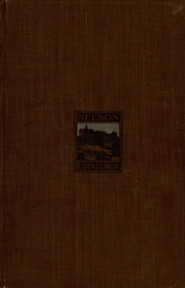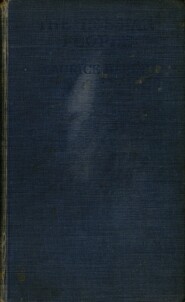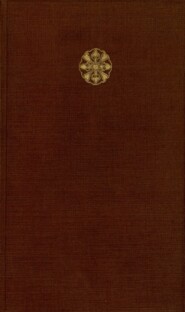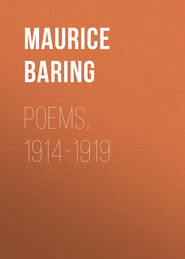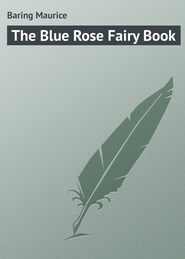По всем вопросам обращайтесь на: info@litportal.ru
(©) 2003-2024.
✖
Passing By
Настройки чтения
Размер шрифта
Высота строк
Поля
Monday, March 1st.
I dined last night with the Housmans, They were alone except for Solway, and after dinner we had some music. Solway played the Schumann Variations and then he asked Mrs Housman to sing. I hadn't heard her for a long time as she hardly ever will sing now. She sang Willst du dein Herz mir schenken. Solway says the song isn't by Bach really but by his nephew. Then she sang a song from Purcell's Dido, some Schubert; among others, Wer nie sein Brot, and the Junge Nonne. Solway said he had never heard the last better sung. Housman then asked her to sing a song from The Merry Widow, which she did.
Housman plays himself by ear.
She did not allude to having been at the office, nor did I.
Tuesday, March 2nd.
Dined with Cunninghame at his flat last night. A comfortable and luxurious abode. I asked him if Ayton was likely to marry. He laughed. He said he had been in love for years, with a Mrs Shamier. I had never heard of her. Cunninghame said she was clever and accomplished, and had been very pretty and painted by all the painters.
He says A. will never marry. I asked him if Mrs Shamier was in London. He said of course. She has a husband who is in Parliament, and several children; a country house on the south coast; but they are not particularly well off.
"You must come and meet her at dinner," he said. "I am devoted to her."
I asked him if she was fond of A.
"Not so much now, but she won't let him go."
I went away early as C. was going to a party.
Wednesday, March 3rd.
Went to the British Museum before going to the office, to look up an old English tune for Mrs Housman from Ford's Music of Sundry Kinds called The Doleful Lover. I found it.
Thursday, March 4th.
Went to Solway's Chamber Music Concert last night.
Brahms Quintet and a trio by Solway himself. Some Brahms Lieder. The Housmans were there. I thought Solway's trio fine.
Friday, March 5th.
A. went to the country this afternoon to stay with the Shamiers; so C. said, but, as a matter of fact, he told me he was going to his own house. Cunninghame is going away himself to-morrow. He always goes away on Saturdays, he says. I remain in London.
Saturday, March 6th.
Went to the London Library and got some books for Sunday: Thaïs, by Anatole France, recommended to me by C.; a book called A Human Document, recommended me by Mrs Housman. I do not think I shall read any of them. The only literature I read without difficulty is The Times and Jane Eyre, and The Times doesn't come out on Sunday.
Sunday Night, March 7th.
Called on the Housmans in the afternoon. She was out. Luncheon at the Club. Dinner at the Club. I began A Human Document, but could not read more than five pages of it. I couldn't read any of the book by Anatole France.
Went to a concert in the afternoon. It was not enjoyable.
Read Jane Eyre.
Letter from Guy Cunninghame to Mrs Caryl
LONDON,
Monday, March 8th.
DEAREST ELSIE,
I meant to write you a long letter yesterday from the country. I went to stay with the Shamiers. I thought, of course, George would be there. He didn't come near the office on Friday. He wasn't there and evidently wasn't even expected.
Louise in tearing spirits and a new man there called Lavroff, a Russian philosopher; youngish and talking English better than any of us, except that he always said "I have been seeing So-and-so to-day," "I have been to the concert yesterday."
Needless to say, I didn't have a moment to write to you, in fact the only place where I get time to write you a line is at the office. Everything is appallingly dull. Mellor, the Secretary, had dinner with me one night. He spoke a little but not much. I think he is shy but not stupid.
George likes being in London, but Louise didn't mention him. It's curious if after all this fuss and trouble to get this job and to be in London it all comes to an end.
The tablecloths have arrived. Thank you a thousand times. They are exactly what I wanted. The curtains have arrived too but they are a failure; too bright. I can't afford to get new ones yet. This week I have got some dinners. George said something about giving a dinner this week.
Yours in great haste,
G.
From the Diary of Godfrey Mellor
Monday, March 8th.
A. asked me whether if I was free on Thursday I would dine with him. I said f would be pleased to. He said he would try and get a few people.
Tuesday, March 9th.
A. has got a Secretary called Tuke. He writes all his private letters and he comes down to the office in the mornings. This morning he came and asked me Mrs Housman's address. It is curious that he should have applied to me and not to C., as I was not here when she called, nor does A. know that I know her. How can he have known that I know her?
Wednesday, March 10th.
Dined with Cunninghame last night at his flat. The guests were Mr and Mrs Shamier, Miss Macdonald, C.'s cousin, M. Lavroff, a Russian, and a Miss Hope. I sat between the Russian and Miss Macdonald. Miss Macdonald is an elderly lady, kind and agreeable. Mr Shamier, M.P., was once, I believe, an athlete, a cricket Blue. Miss Hope looked as if she were in fancy dress; Lavroff, the Russian, is unkempt, with thick eyebrows and dark eyes. Tolstoy was mentioned at dinner. Mrs Shamier said he was her favourite novelist, upon which Lavroff became greatly excited and said the day would come when, the world would perceive and be ashamed of itself for perceiving that Tolstoy was not worthy to lick Dostoyevsky's boots. Being asked my opinion I was obliged to confess that I had read the works of neither novelist. Miss Macdonald asked me who was my favourite novelist. I said Charlotte Brontë. She said she shared my preference and couldn't read Russian books, they depressed her. After dinner we had some music. Miss Hope sang and accompanied herself. She sang songs by Fauré and Hahn; among others La Prison. She altered the text of the last line, and instead of singing "Qu'as tu fait de ta jeunesse?" she rendered it – "Qu'as tu fait dans ta jeunesse?": scarcely an improvement. When she had finished Lavroff was asked to play. He consented immediately and played some folk songs. Although he is in no sense a pianist, they were beautifully played.
Thursday, March 11th.
Had dinner last night with Admiral Bowes in Hyde Park Gardens. The only people there besides myself were Colonel Hamley and Grayson, who is, they say, a rising M.P. The Admiral said his nephew, Bowes in the F.O. (whom I know a little), had become a Roman Catholic.
"What on earth made him do that?" said Colonel Hamley.
"Got hold of by the priests," said the Admiral; and they all echoed the phrase: "Got hold of by the priests" and passed on to other topics.
I have often wondered what the process of being "got hold of by the priests" consists of, and where and how it happens.
Friday, March 12th.
Dined last night with A. at his flat. I was surprised to meet Mr and Mrs Housman. The hostess was A.'s sister, Mrs Campion. She is a deal older than he is, a widow and good company. There was also a Mrs Braham, and a younger man called Clive. He is in a bank and is, I believe, a useful man in a sailing boat.
I sat between Mrs Campion and Mrs Housman.






